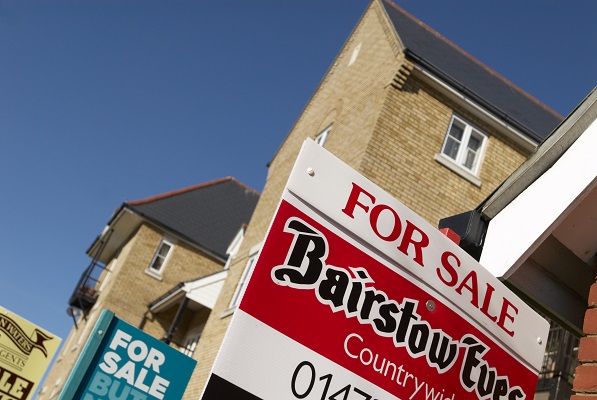Chancellor Jeremy Hunt is set to unveil his Autumn Statement next week, with reports suggesting first-time buyers could receive a string of measures to help them get a foot on the ladder and stimulate the housing market.
From a potential extension of the mortgage guarantee scheme, to further stamp duty changes and a new ISA to boost savings for first-time buyers, David Hannah, property expert and Group Chairman of Cornerstone Tax, the UK’s leading property tax experts, provides the definitive guide to what November’s Autumn Budget means for those hoping to step on the housing ladder for the very first time.
The government is set to extend the mortgage guarantee scheme for an extra year, helping people take out a mortgage with just 5% of their deposit. A higher interest rate environment has lowered the amount of money prospective buyers can borrow, meaning bigger deposits are currently needed.
This is set to stimulate activity within the housing market after property sales have slowed this year, with Zoopla warning they would fall to their lowest level this decade. The scheme, first introduced in March 2021 by then Chancellor Rishi Sunak, encourages lenders to give mortgages to borrowers with a smaller deposit. Some experts have warned however that this could consequently raise prices again, with Hannah explaining that providing support for first-time buyers without the creation of new homes could risk inflating buyers’ buying power, ultimately pushing up prices.
A lifting of the £450,000 limit on savers’ first property could also be on the cards, while sources also reveal the department is also considering a new ISA – adding more choice to the six current options – to encourage potential buyers to save for their first home. Similarly, the Lifetime ISA (LISA) could see changes made following criticism around this particular initiative including high penalty charges. Some are calling for the LISA penalty cut from 25% to 20% while the government may also consider raising the age that you can keep paying into a LISA from 50 to 55, to encourage the self-employed to save for retirement.
Finally, the Autumn Statement could also see a sleuth of tax changes, with reports suggesting that the Government is set to either reduce stamp duty or abolish inheritance tax in a bid to support first-time buyers in a challenging economic climate. Reports reveal that discussions have centred about increasing the thresholds.
Currently, Brits begin paying stamp duty at 5% of the value of a property over £250,000 with the rate rising to 10% for homes over £925,000 and as much as 12% for houses valued at over £1.5m. The government is expected to adapt the threshold in line with support for first-time buyers.
Since December 2021, interest rates have risen from a historic low to 5.25% as the Bank of England (BoE) sought to curb high inflation. Households have continued to grapple with higher living costs, adding further pressure for borrowers struggling to keep up with their monthly repayments.
David Hannah, Group Chairman of Cornerstone Tax, said, “First-time buyers have spent the past two years anxiously waiting as mortgage rates continue to surge at exponential rates. The Autumn Statement will be a critical juncture for the government to find a way to support first-time buyers and stimulate the housing market after months of volatility.
“A potential extension of the mortgage guarantee scheme, LISA change and the introduction of new ISA products signal a positive direction, particularly around rebuilding confidence within the property market.
“However, in a period when inflationary figures still remain relatively high and a majority of borrowers are still struggling to keep up with their monthly repayments, the Treasury needs to strike a delicate balance between encouraging home purchases and generating more stock to keep up with high demand.
“The government’s new measures could mean that those stuck in the rental market can finally take one step closer to home ownership. This could boost transactions, but the government still needs to keep the number of available homes in mind, otherwise we could see house prices rise yet again and ultimately counter their plans to support first-time buyers.”






Leave a Comment